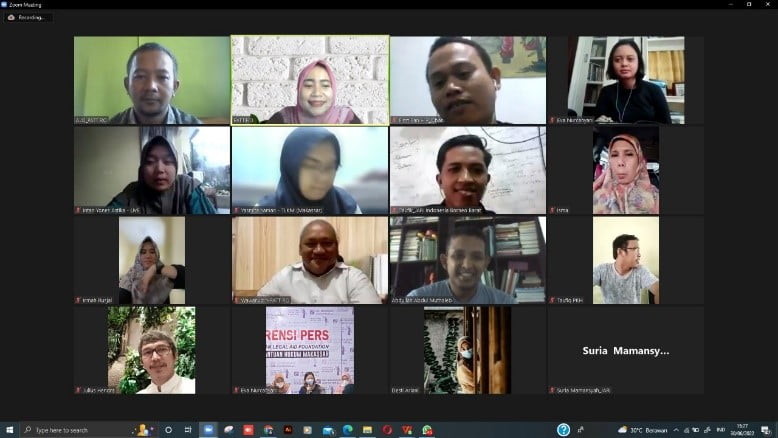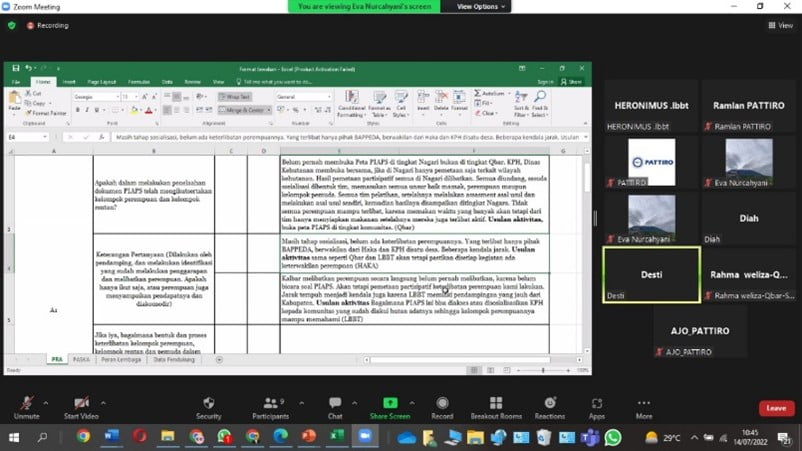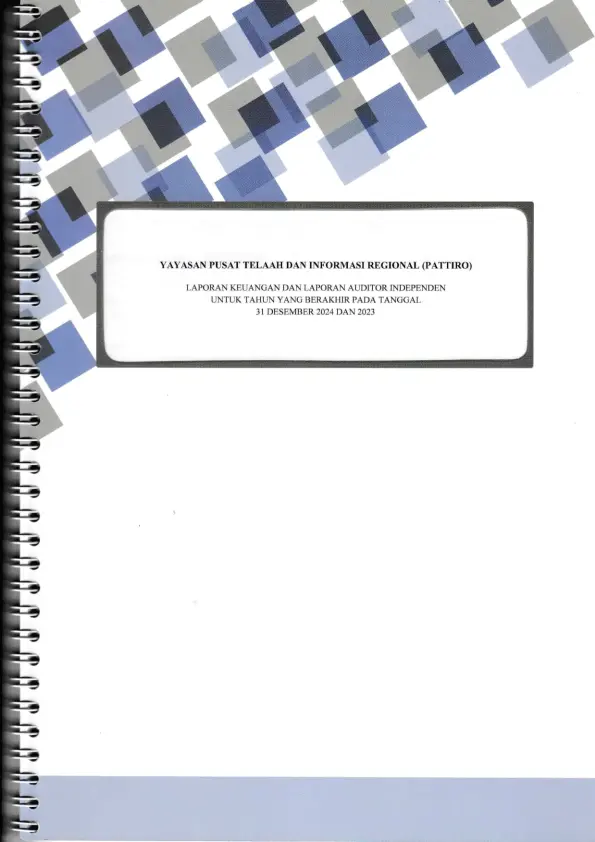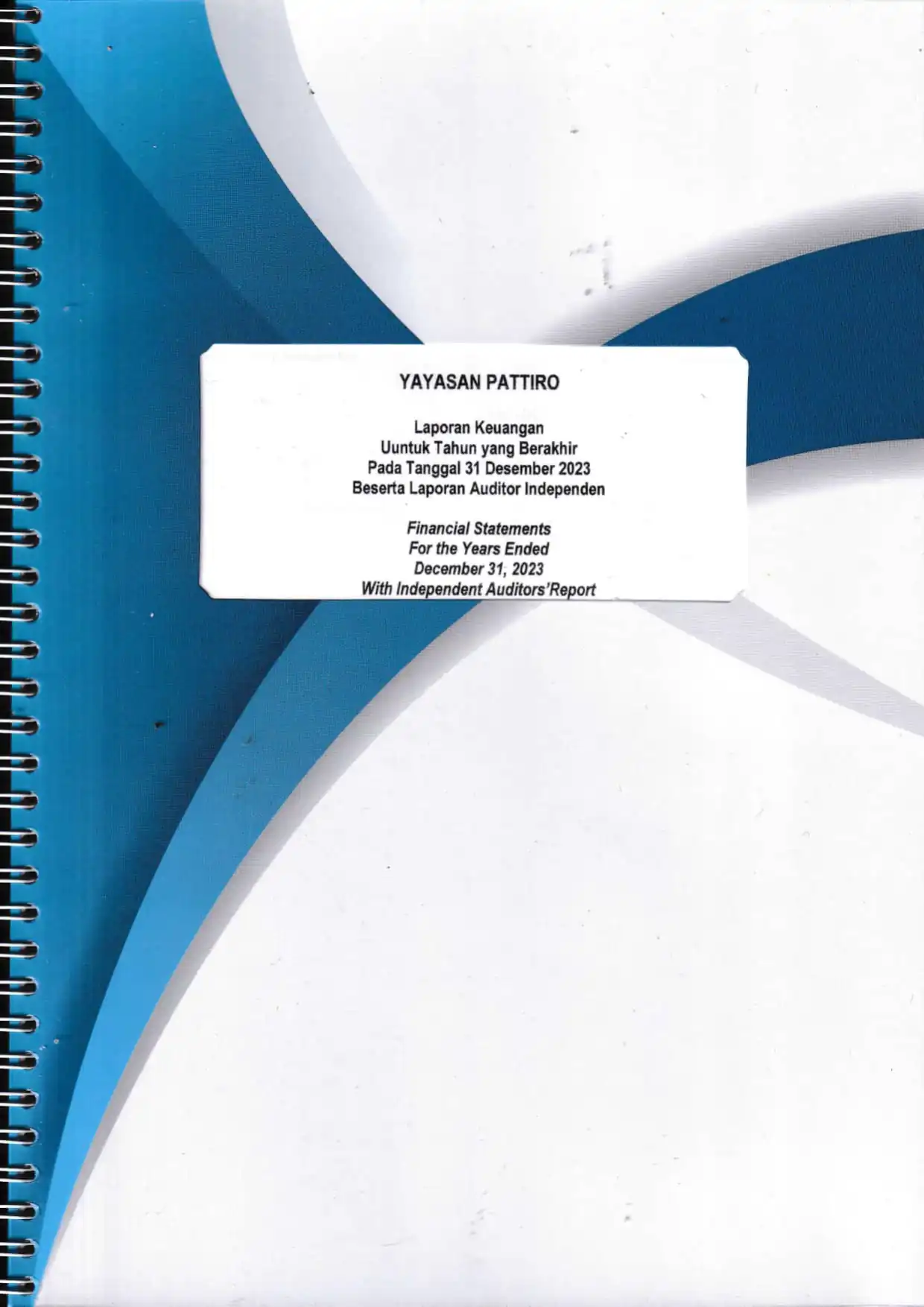
PATTIRO has developed Gender Assessment Tools (GAT) in Social Forestry. This tool aims to identify various gender issues in social forestry management starting from the pre- and post-approval stages of social forestry to social forestry policies and institutions in the regions. The assessment results are expected to be the starting material for developing more gender-responsive social forestry policy recommendations to the central and local governments.
PATTIRO collaborates with local civil society organizations, such as HaKa Aceh, Qbar West Sumatra, JARI West Borneo, LBBT West Kalimantan, KBCF East Kalimantan, TLKM South Sulawesi, and Panah Papua, as tools to identify gender issues in social forestry. To assist partners in filling out the GAT, PATTIRO provides assistance in the form of technical assistance so that the filling of the GAT assessment instrument that is being carried out by partners is in accordance with the expected procedures and objectives.
The mentoring activities are carried out online and have been carried out twice, namely on June 30 and July 14-15, 2022. The method used was a sharing session to discuss the progress of filling out the assessment instrument, as well as the obstacles and challenges faced by each partner in the field.
In the first meeting (30/6), the agenda was a presentation on the report on the results of a rapid assessment conducted by PATTIRO in 2021 on gender issues in social forestry in West Nusa Tenggara Province. The speaker was Wawanudin as the research team from PATTIRO who conducted the study. During the event, Wawanudin presented the research results in the form of field findings on gender issues in social forestry in NTB. Through this session, participants got an overview of the various gender issues that occur in social forestry management in the region, so that later it can help to understand the purpose of filling out the GAT and analyzing the data and information obtained from the assessment.
At the second meeting, technical assistance was conducted based on the regional origin of partner institutions, and was held on July 14-15, 2022. The regional division was to be able to dig deeper into the progress of filling from each region, including providing sufficient time for sharing session on the condition of social forestry management in each region. Participants came from HAkA Aceh, Qbar Sumbar, Lembaga Bela Banua Talino (LBBT) and Kawal Borneo Community Foundation (KBCF), Sikola Mombine, Community Forestry Service Team (TLKM) and Panah Papua.
During the mentoring process, each partner shared first the progress of the GAT filling that had been done, and continued with a deepening session on each question from the GAT. This activity facilitated by PATTIRO program team, Diah Mardhotillah and Eva Nurcahyani, resulted in several field findings related to gender gap issues in social forestry management practices in the regions.

Desti Ariani, Program Officer of HAkA Aceh Foundation, revealed that currently her organization is assisting Village Forest management groups in Mendale Village, Central Aceh District and Padang Village, Southwest Aceh District. Both of these areas are part of the KPH Region V Aceh management area. She observed that women have been involved in the early stages of pre-approval of social forestry, namely the review of PIAPS documents. This involvement took the form of women members going to the field to check the PIAPS map. Nevertheless, not all communities support women going to the field. There is still a concern and stigma that women are physically incapable of going directly to the field and that women should only focus on domestic work. It indirectly reduces women’s mentality to be active in the review activities.
” Women members of social forestry groups in Padang Village, Southwest Aceh District have been very actively involved in reviewing PIAPS documents and going directly to the field. But there is still a lot of stigma that women are considered physically weak, so they will not be able to go directly to the field,” said Desti.
Desti further said that the involvement of women in her assisted areas was also in the data collection of cultivators or the identification of social forestry subjects. However, women’s involvement arises from their own willingness and encouragement from HAkA after attending training etc. After capacity building for the women, the FMU emerged and provided similar support in the form of capacity building. However, in the process of identifying social forestry subjects, she has not found any disaggregated data on women and men. Even the KPH, according to her, does not have such disaggregated data.
Irmah Rusjal from Kawal Borneo Community Foundation (KBCF) shared her experience in assisting social forestry groups in East Kalimantan. She explained that women’s involvement is still dominant in post-approval activities for social forestry. ” In our experience, women are very influential in the post-approval process, namely managing the Social Forestry Business Group (KUPS), because it is women who directly coordinate in the production process, for example in making chips, pickles and fruits,” added Irmah. To get women involved from the beginning, she said it is very important for them to be present in the socialization of SF approval.
In another case, Hero, a representative of Lembaga Bela Banua Talino (LBBT) argued that women’s subordinate position in forest management is not only due to social construction, but also due to the system that requires data collection from those who work on the land, namely the husband’s KTP and KK, so that women’s access and participation in social forestry is still very limited. “Since the beginning of data collection, the officer asked for the husband’s KTP and KK as the head of the family, so the data on women who work on the land is still very limited,” said Hero, who is active in assisting SF groups in West Kalimantan.
Mentoring activities at this second meeting still focused on udpate and exploring the situation that occurred in their respective regions. As a follow-up, in the next one to two weeks the participants will complete the GAT again including field interviews to obtain data and information.




